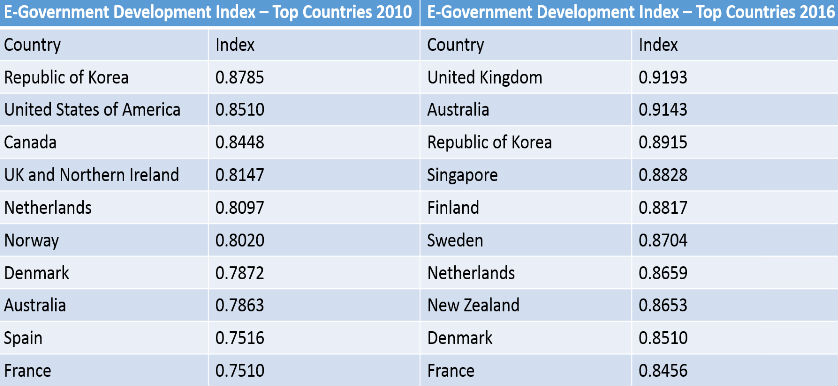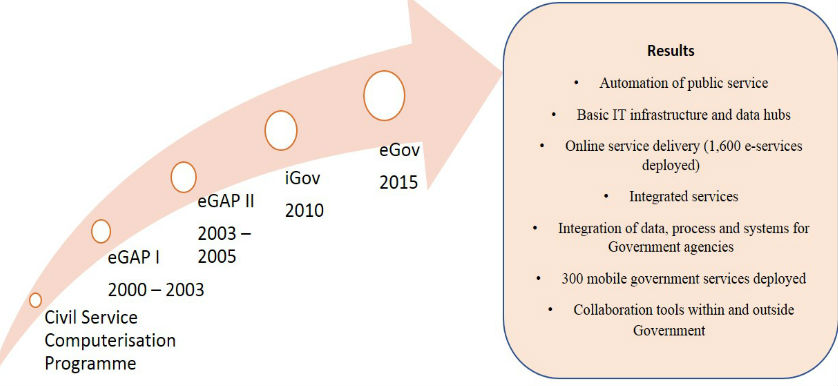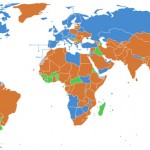Global E-Governance Index – Study Case Singapore

Globalization and the rapid progress of info-communications technologies are bringing about fundamental changes in all aspects of our society.
Besides redefining the way nowadays society works, technology’s rapid development has brought numerous opportunities for further improvements and a solid ground for innovative solutions. The changes were so deep that they have completely changed the game in today’s economic world.
This calls for a fundamental rethinking of and transformational shifts in the way governments work. Governments must take on the roles of a facilitator and enabler – to collaborate with the public, private and people sectors in creating new solutions, new businesses, and new wealth.
Thus, during past years, one could notice a major focus on initiative for e –governance or citizen self-service. The particularity of e-Government consists in the fact that is a tool meant to increase the performance of governments.
Reliable and relevant e-government measurement can offer crucial signposts to point policy makers and practitioners in the right direction. Thus, The United Nations has developed a methodology for measuring e-government development performance, via an index.
Being the most recognized and widely-used index of this type, it provides a unique perspective on the efficiency and effectiveness of the public sector from a particular country. As a composite indicator, the EGDI is used to measure the readiness and capacity of national administrations to use ICT to deliver public services.
This measure is useful for government officials, policymakers, researchers and representatives of civil society and the private sector to gain a deeper understanding of the relative position of a country in utilizing e-government for the delivery of public services.
Methodology:
The value of the index was calculated by weighing the average normalized scores on the three most important dimensions of e-government: online service, telecommunications infrastructure and inherent human capital.
For each category there are several Key Performance Indicators measured as follows:
Telecommunications Infrastructure Sub metric:
– % Individuals using the Internet
-% Fixed (wired)-broadband subscriptions
-% Wireless broadband subscriptions
-% Fixed-telephone subscriptions
-% Mobile-cellular subscriptions
Human Capital Sub metric:
– # Average years of schooling
– # Expected years of schooling
– % Adult literacy
– % Gross enrolment
For the third sub-metric, online service index, the evaluation was made by 2 UN experts per each country. They evaluated the percentage of digitalized services and the online presence of the public services.
While measuring this index relevant information on related topics was revealed, such as the citizens participation in decision making, E-consultation and E-information.
Now, measuring this index is not for award-winning purposes. It is actually about finding a better way to serve people and achieve objectives. Moreover, it also provides a tool which can be used by people to be involved in the design and use of public services to ensure the well-being of all.

When comparing the results from the 2010 top to the ones from 2016, it can be easily seen that Singapore has registered an outstanding evolution. Thus, in the following part, we will highlight the process they have implemented. A step by step analysis will be made in order to provide a holistic perspective on how a successful recipe looks like.
Study case – Singapore
The development process was extended for a period of almost 20 years, during which multiple adaptions and improvements have been brought to the initial project.
Thus, nowadays Singapore is the country with some of the fastest broadband services available and smart digital services that enable seamless transactions, with the Republic of Singapore being recognized as a leading light in the digital world.

First of all, in the Telecommunications Infrastructure matter, Singapore was among the first to have broadband links nationwide, via the deployment of a fiber broadband network and wireless hotspots throughout the island.
When it comes to online service, the services deployed are meant to ease citizens’ activities related to government matters. Thus, citizens have access to hundreds of digital services provided by more than 60 government agencies. They can also receive support on any of the administration’s agencies websites, from a chart robot that can guide their steps in finishing the tasks they have to solve.
Timeliness is not a problem anymore for Singaporeans. MyInfo, the service implemented for solving this matter, pulls users’ personal data across participating Government agencies to fill out digital forms, which helps citizens save time, and will eventually remove the need to provide supporting documents as verifications during transactions.
MyInfo is also currently being piloted within the banking industry, and will be integrated with most SingPass digital services by middle 2018. Moreover, a portal has been implemented for crowdsourcing activities, which leverages on the public’s knowledge of solving problems and issues that Singapore may be facing and providing feedback on municipal issues.
When it comes to business, one of the priority areas for Singapore’s Smart Nation vision is Open Data sharing. Thus, by releasing data, the government aims to unlock economic value, enable quality research and deepen public participation and engagement.
Furthermore, a number of platforms that serve as a catalyst for transforming problem statements into innovative solutions has been developed. The project is called InnoLeap and it includes workshops, sharing sessions, clinics and virtual exchanges.
Last but not least, the services developed for governmental usage contain a centralized data sharing platform (for agencies to exchange information conveniently and securely) and the “Courts of the Future“ project, which is meant to increase the efficiency and effectiveness of the Judiciary system through data analytics and artificial intelligence. This initiative also offers self-help solutions for litigants and lawyers.
Over the years, Singapore has been awarded top marks in prestigious studies such as the World Economic Forum’s Global Information Report. The country’s infrastructure as well as government digital services are often recognized for its technological readiness, having long surpassed many other country contenders.
Image sources:

Tags: Government performance, Performance in Singapore, Research and Development





